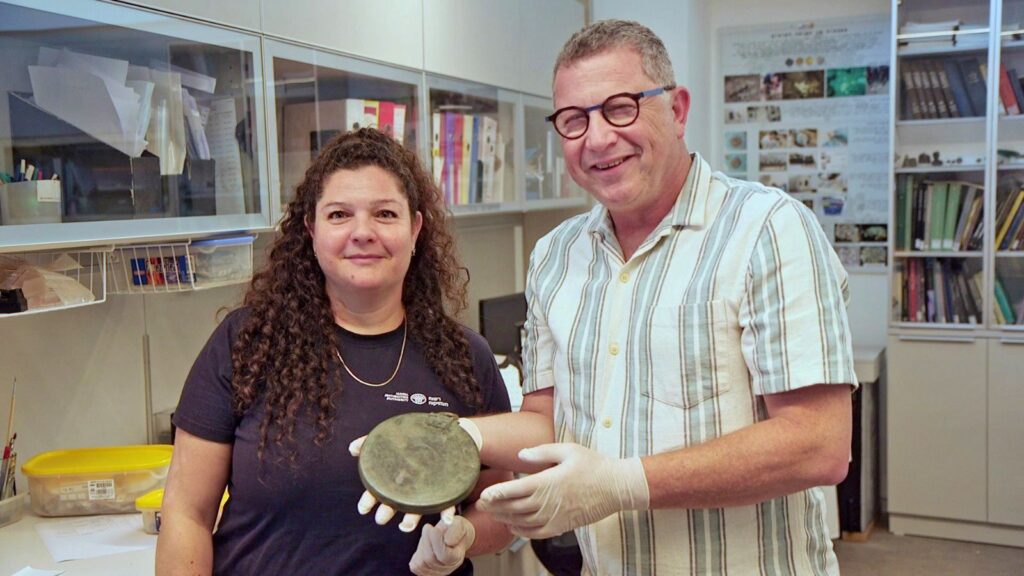
Dr. Guy Stiebel and Liat Oz with the rare mirror. (Photo: Emil Aladjem, Israel Antiquities Authority)
Here is Jewish Business News’ list of the five top archeological stories to come out of Israel in 2023, or at least between the Jewish New Year – Rosh Hashana – and now.
Israel Archeologists Find Evidence Of 7,000 Year Old Local Weapons Production
In an example of yet another sensational as well as historic discovery made by archaeologists in Israel, in November the Israel Antiquities Authority released findings that show that as long ago as 7,200 years – that would be around 5,200 BC – there was already a “large-scale” and “systematic” production of war weapons in the country.
The people of the Land of Canaan must have either been in a state of constant war, or, like modern Israel, they were proficient at making weapons and selling them to surrounding peoples.
Will you offer us a hand? Every gift, regardless of size, fuels our future.
Your critical contribution enables us to maintain our independence from shareholders or wealthy owners, allowing us to keep up reporting without bias. It means we can continue to make Jewish Business News available to everyone.
You can support us for as little as $1 via PayPal at office@jewishbusinessnews.com.
Thank you.
Research from IAA showed that in the area that is now modern Israel, there was what it described as a “mass production” of weapons back then.
1,500 Year Old Byzantine Lamp Found By IDF Reservists
Just this past week several Israelis serving in IDF reserve duty – just everyday people doing their civic duty – discovered a 1,500-year-old oil lamp dating back to the Byzantine period and did the right thing, they turned in their find. Interestingly, the lamp would not have been found – at least at this time – if it were not for the war in Gaza.
Ancient Greek Roof Tiles Found In Jerusalem
In December, just in time for Chanukah, archeologists in Israel uncovered ancient roof tiles in the City of David in Jerusalem that they have dated to the time of the Maccabean revolt against the Syrian-Greek dynasty that occupied Israel that occurred in the second century BCE and its king Greek Seleucid king Antiochus IV – Antiochus Epiphanes.
The sixteen Hellenistic-period roof tile fragments date from the 2nd century BCE.
Ancient Tomb Of Greek Courtesan – Hetaira – Uncovered
In September, a tomb of a courtesan (hetaira – in Ancient Greek) dating from the late 4th century – early 3rd century BCE in Jerusalem was uncovered. It is rare to find evidence of the Hellenistic period in the Jerusalem region, and this tomb provides a unique glimpse into the life and death of a courtesan during this time.
‘Magical’ Artifacts Found In The Eilat Mountains
Also in September, Israeli archeologists found “magical” artifacts in the Eilat Mountains above the city at the bottom of south Israel.
The artifacts included dozens of fragments of round clay rattles containing small stones, two miniature incense altars, a small figurine of a naked woman, additional figurines, and colored quartz pebbles. The archaeologists believe that these artifacts were used for magic rituals, such as warding off the evil eye, healing diseases, and ensuring a safe journey.



